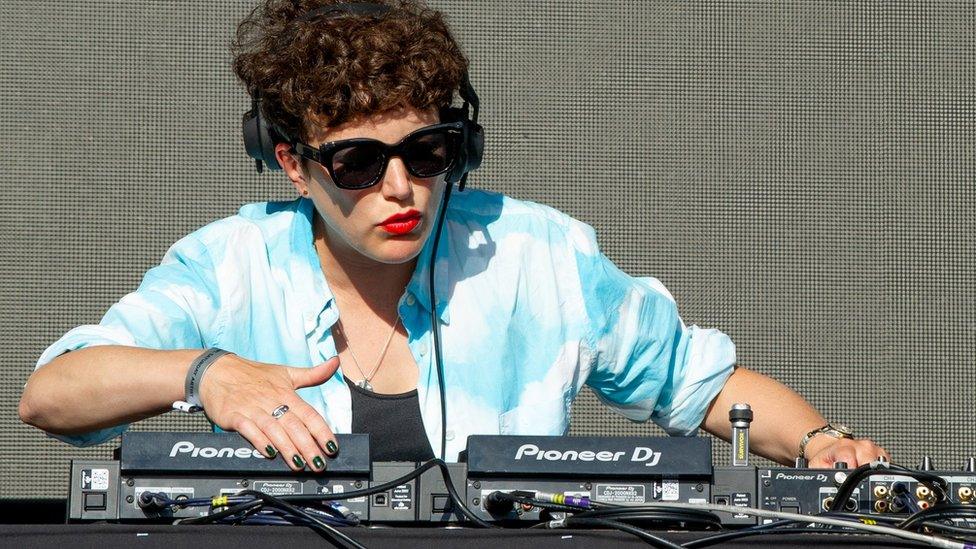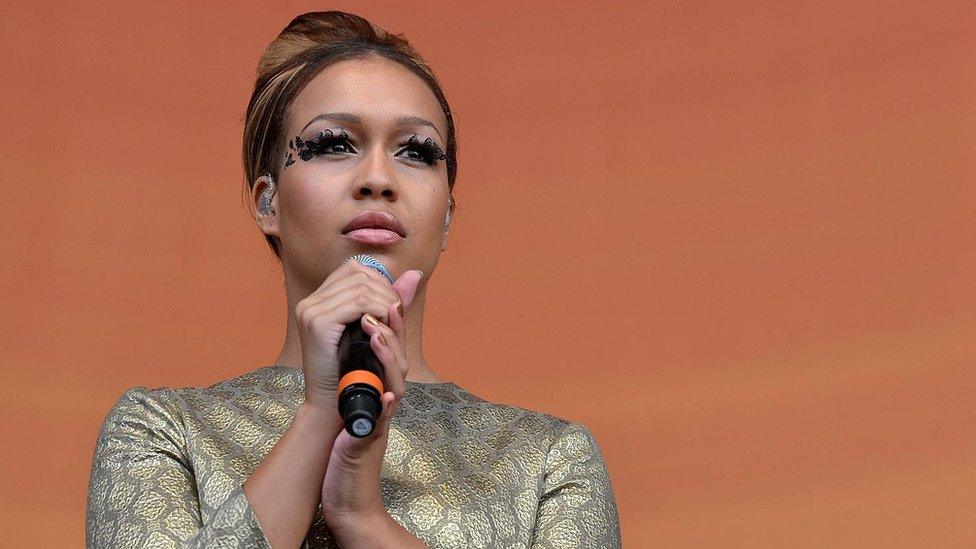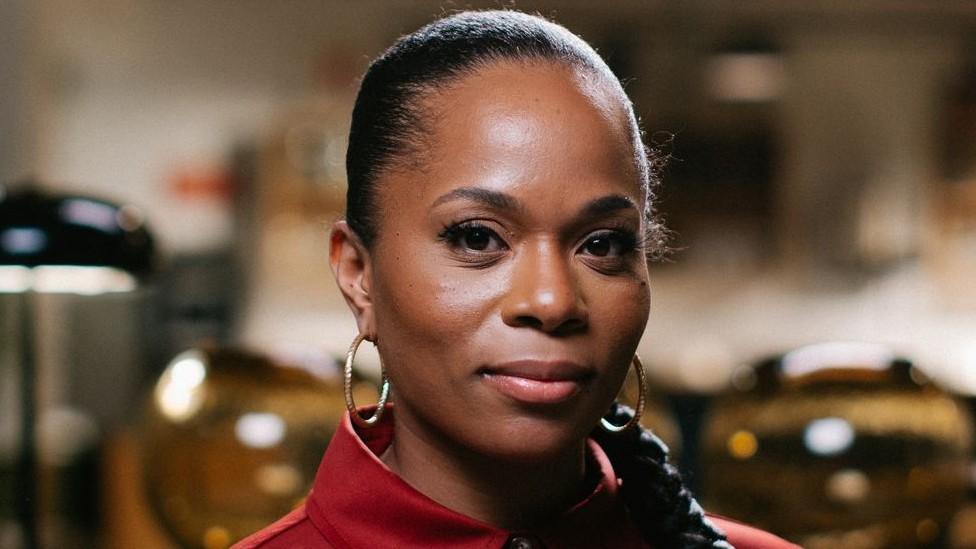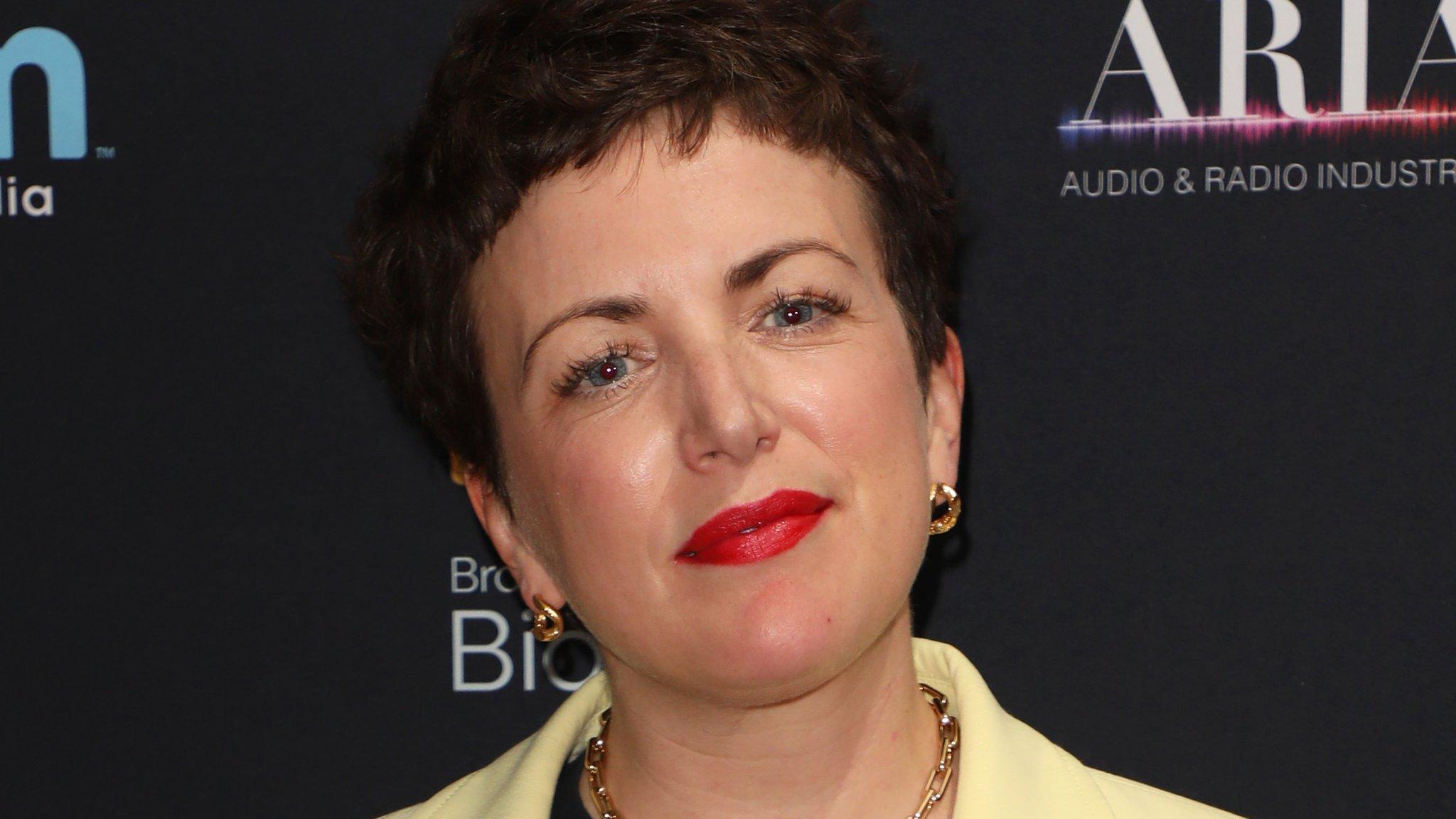'Women sit next to abusers at music industry parties' MPs warn
- Published

Annie Macmanus has described the music business as "a boys' club"
The music industry is still a "boys' club" where sexual harassment and abuse are common, MPs warned in a report.
The Women and Equalities Committee said musicians have to sit beside sexual abusers at parties and events, due to a "culture of silence".
It makes a series of recommendations to tackle the problem of misogyny, but also said that a shift in the behaviour of men is needed.
The government said the industry must ensure "a safe working environment".
The report by the Women and Equalities Committee follows an inquiry into misogyny in the music industry, which began in June 2022.
The cross-party group of MPs concluded that the issue was "endemic" and called for urgent action to tackle it.
The inquiry heard evidence from people including the former BBC Radio 1 DJ Annie Macmanus, who said there was a "tidal wave" of revelations about sexual assault in the music industry waiting to be told.
The broadcaster and writer said there was an "unbelievable" number of stories that have not yet emerged, and warned the industry was "rigged against women".
Singer and former X Factor contestant Rebecca Ferguson said in her evidence that misogyny in music was just "the tip of the iceberg".
She said bullying and corruption was allowed to happen, and said she had been told rapes were going unreported.

Rebecca Ferguson said people in the industry abused their power
The committee warned that non-reporting of sexual harassment and abuse was high, and that victims who did speak out struggle to be believed or face losing their career.
They said female artists are routinely undervalued and undermined, endure a focus on their physical appearance in a way that men are not subjected to, and have to work far harder to get the recognition their ability merits.
"Much of the evidence we received has had to remain confidential, including commentary on television shows and household names," the report said.
"That is highly regrettable but demonstrates the extent of the use of NDAs [non-disclosure agreements] and the culture of silence."
It said women in the music industry have had "their lives ruined and their careers destroyed by men who have never faced the consequences for their actions".
More broadly, the MPs also said women face a lack of support and persistent unequal pay, and warned these issues are worse for women who already face racial discrimination.
In 2021, a BLiM (Black Lives in Music) report found that racism in the British music industry was "serious, upfront and personal".
Misogyny is 'endemic'
The report by the Women and Equalities Committee makes a series of recommendations to try and tackle misogyny and discrimination in the music industry.
The MPs called on ministers to amend the Equality Act, to ensure freelance workers have the same protections from discrimination as employees, and to improve protections for people facing intersectional inequality.
They also recommended the government legislate to impose a duty on employers to protect workers from sexual harassment by third parties.
The committee also urged ministers to prohibit the use of non-disclosure agreements in cases involving sexual abuse, sexual harassment or bullying.
Other recommendations in the report include increasing investment in diverse talent, and improving pathways to careers for women working in the industry.
The report welcomed the establishment of a single, recognisable body, the Creative Industries Independent Standards Authority, which it said would help to shine a light on unacceptable behaviour in the music industry.
But the committee cautioned it is "not a panacea for all of the problems in the industry" and "time will tell whether it has the powers required to drive the changes needed".
The committee chair, Caroline Nokes, said women's potential "should not have limits placed upon it by 'endemic' misogyny which has persisted for far too long within the music industry".
She said the report focuses on improving protections and reporting mechanisms, and on making reforms.
"However, a shift in the behaviour of men - and it is almost always men - at the heart of the music industry is the transformative change needed for talented women to quite literally have their voices heard and be both recognised and rewarded on equal terms."
A government spokesperson said: "All women should be able to work in a music sector which is free from misogyny and discrimination. The industry must do all it can to ensure there is a supportive and safe working environment and to address any imbalances of power that exist.
"The government will carefully consider the Committee's recommendations, and it is right that the industry is taking action through work led by Creative UK and the formation of the Creative Industries Independent Standards Authority."

Are you affected by the issues raised in this story? Share your experiences by emailing haveyoursay@bbc.co.uk, external.
Please include a contact number if you are willing to speak to a BBC journalist. You can also get in touch in the following ways:
WhatsApp: +44 7756 165803
Tweet: @BBC_HaveYourSay, external
Please read our terms & conditions and privacy policy
If you are reading this page and can't see the form you will need to visit the mobile version of the BBC website to submit your question or comment or you can email us at HaveYourSay@bbc.co.uk, external. Please include your name, age and location with any submission.
Related topics
- Published27 October 2022

- Published13 September 2023
